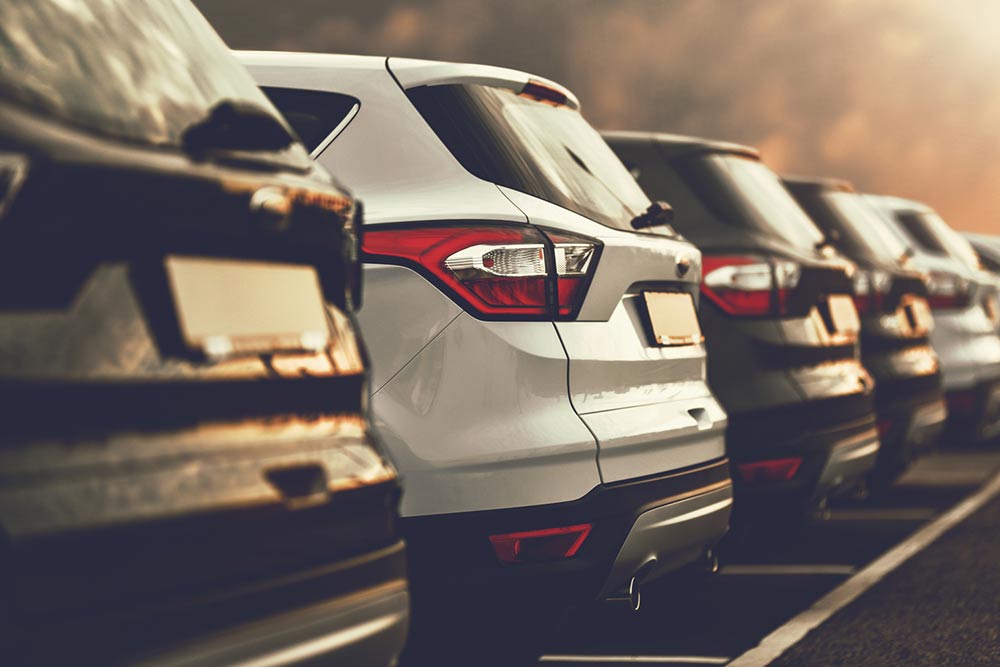
10 common mistakes to avoid while purchasing an SUV
For automobile enthusiasts, there’s nothing comparable to buying an SUV that perfectly balances speed, space, comfort, and power in a vehicle. This is the main reason why SUVs have emerged big time in the automotive industry, offering different sizes and trims to suit personal preferences. However, buying an SUV is a significant investment, so avoiding mistakes becomes crucial. To help make an informed decision, here are some common mistakes to avoid while purchasing an SUV.
Only going by the design
There are many SUVs with unique designs currently on the market. But going only by an SUV’s design is a mistake because a spectacular SUV with limited utility features is a white elephant. Therefore, one should consider the overall features of the vehicle, including factors like its performance, cargo space, price, safety, etc., before making a choice.
Buying a vehicle of the wrong size
An SUV’s size determines the number of passengers and the amount of cargo it can accommodate. While only four to five passengers may fit comfortably into a compact SUV, midsize ones can accommodate up to seven passengers, and the large ones have space for even more. The best way to decide what size of SUV one requires is to consider personal requirements – the number of family members, frequency of long-distance travel, etc. For example, people with smaller families who need an SUV primarily for local commutes may do better with a compact SUV. But those who travel often and need additional space for cargo or have large families may require a midsize or large-sized SUV.
Not researching adequately
The first step to buying a good SUV is to research the available options thoroughly. Jumping on the bandwagon or hastily finalizing the brand and model can backfire in the long run. It is also important to avoid being too brand loyal because that limits one’s options. Today, many brands offer premium SUVs with highly advanced features, so a market analysis can help understand what brand and car has the best features while being reasonable.
Not setting a clear budget
Buying an SUV is a long-term investment, so one needs to be careful to avoid overspending and know the costs well in advance. The total expense involved in purchasing an SUV is more than the quoted price because overhead charges like registration fees, licenses, depreciation, insurance, and taxes need to be added. If one fails to consider all these added costs, it might lead to a financial crunch later. Therefore, proper budget planning is a must before buying an SUV.
Overlooking safety features
Safety should be the top priority for buyers when looking for an SUV, regardless of its size or power. It is best to go for SUVs with advanced, tech-enabled safety features because they can safeguard the driver and passengers in the event of accidents and reduce impact. Stability control, airbags, forward collision warning, pretensioner seatbelts, reverse parking camera, blind-spot monitoring, and lane assist are some of the safety features to look for in an SUV.
Neglecting ground clearance
Ground clearance is essentially the distance between a car’s undercarriage and the road. With a good ground clearance, an SUV can be easily driven off-road, so a ground clearance of at least 8-10 inches is advisable. But if the ground clearance is higher, it only works for those who love taking off on adventure drives.
Buying a car with less space for cargo
Even if one does not travel frequently, sufficient cargo space eliminates the need to stuff bags and other belongings on the passenger seats or over the speakers. So, it helps to check whether an SUV has enough cargo space, including the additional storage in the center console and underfloor compartments.
Not checking out warranty coverage
An SUV covered by a good warranty plan ensures buyers are financially compensated if the vehicle suffers any defects or damage. Premium SUV brands have comprehensive warranty coverage plans, such as bumper-to-bumper, powertrain, roadside assistance, and specific parts warranty. Also, one must check the period and miles for which the warranty coverage is available.
Overlooking towing capabilities
Many people make the mistake of not giving much importance to towing, especially if they buy a car to commute locally. But even so, one should consider the car’s towing capabilities because it is easy to overload a vehicle in certain situations, like during occasions or when relocating. Knowing the towing capacity helps limit the number of passengers and volume of cargo being transported in such situations.
Deciding at the last minute whether to buy a new or used SUV
New and used SUVs have their own set of pros and cons. Knowing which to buy beforehand makes the process much easier because one knows what factors must be considered and the budget range to select. Furthermore, one would need to contact local car dealers accordingly. For example, buying a brand-new SUV means the car is in good condition, so a test drive and some basic checks should be enough before purchasing it. But if it is a used SUV, one would have to inspect the vehicle more closely and investigate its ownership history.





